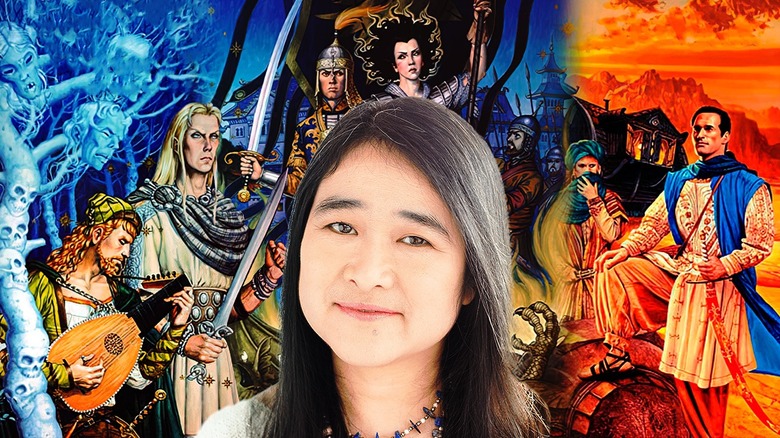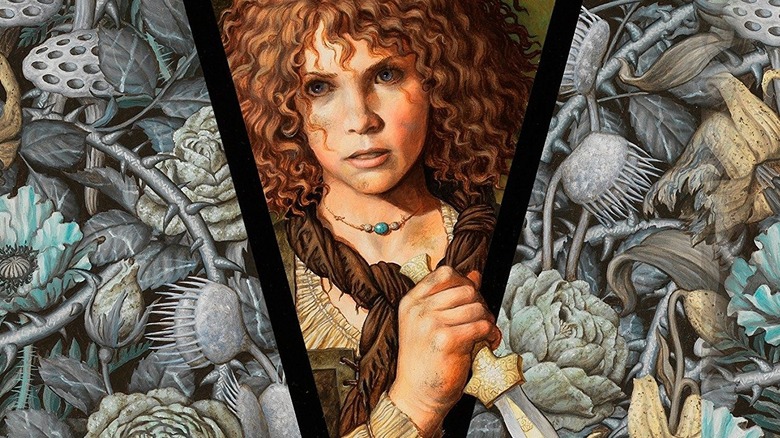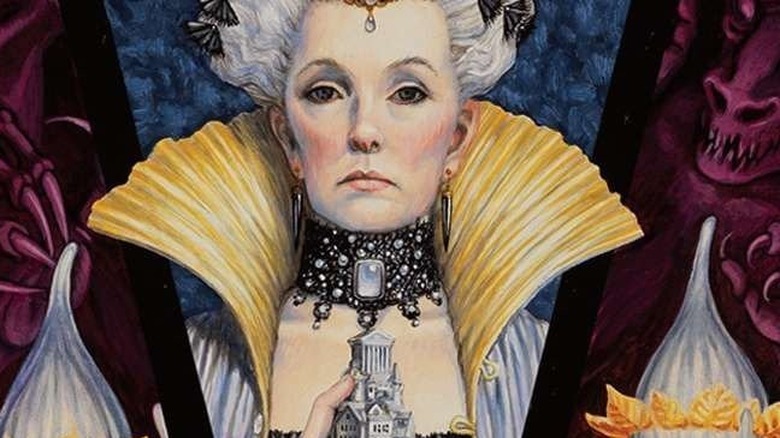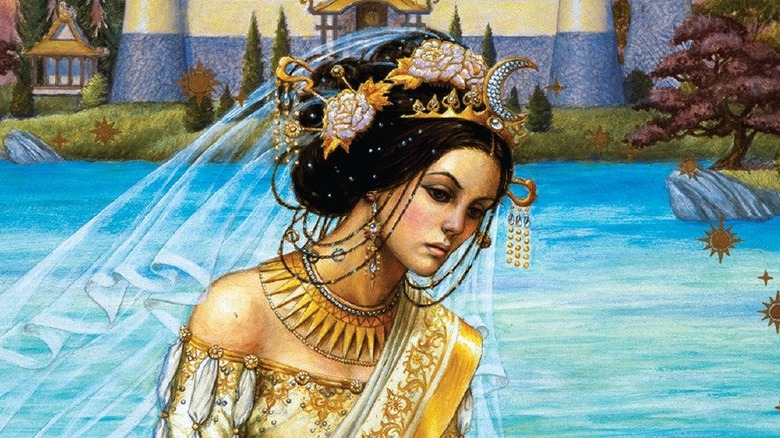Essalieyan Is The Biggest, Baddest Fantasy Series You've Never Heard Of (& It's Ripe For Adaptation)
What do people look for in a fantasy series? Some readers might be drawn toward "The Lord of the Rings" brand of storytelling, which follows unlikely heroes as they set out to stop a Dark Lord from throwing a massive apocalyptic hissy fit. However, other readers prefer the political intrigue and human conflict of "A Song of Ice and Fire," which is more grounded and shrouded in moral ambiguity. At the end of the day, it's all good, but it's extra sweet when a series combines all of these elements into one tasty treat.
Unfortunately, some of the best fantasy sagas don't receive the recognition they deserve. The series mentioned above have sold millions of copies and spawned their own movies and TV shows — and deservedly so. However, Michelle West's "Essalieyan" saga has also been transporting readers to mystical lands for decades, but her efforts have been largely unnoticed by pop culture connoisseurs outside of her diehard fanbase. That's not right at all, and it's about time West caught a huge break.
"Essalieyan" deserves to be held in the same esteem as "Lord of the Rings," "A Song of Ice and Fire," "The Wheel of Time," and "The Riftwar Cycle" when it comes to the truly mighty fantasy sagas out there. Furthermore, streaming services, TV networks, and film studios that want to find the next hit fantasy adaptation should consider optioning this one ASAP, as "Essalieyan" is a concoction of everything that makes the genre great.
The Essalieyan universe is truly epic
Did "Game of Thrones" outpace its source material and suffer as a result? Is there enough information on the Second Age of Middle-earth to justify the existence of "The Rings of Power?" These arguments come up from time to time, but an "Essalieyan" adaptation wouldn't attract this type of discourse as it's one of the most substantial fantasy series out there.
Beginning with 1995's "Hunter's Oath," the "Essalieyan" saga is a dense, sprawling epic that currently boasts 16 novels, which are split into three subseries — "The House War," "The Sacred Hunt," and "The Sun Sword." All of these series contain a multitude of storylines and chronicle the journeys of multiple characters. The stories also venture between a multitude of fantastical regions with their own customs, cultures, and conflicts. It's a lot of material, but fantasy fans will get lost in it.
One of the main conflicts throughout the series pertains to Allasakar, the Lord of the Hells. Like most Dark Lords, he wants to bring about the end of days, and he has numerous servants and demonic minions willing to do his bidding. However, the "Sun Sword" saga really digs into the politics of regions known as the Dominion and the Empire. These societies are at odds with each other and their inner bodies, but their cultures are vastly different. The Dominion is oppressive, while its neighbor is more egalitarian, but not without its flaws. Politics is a nasty game, and it's even worse when some politicians take advice from actual demons.
Essalieyan offers a fully-realized world
"Essalieyan" combines the epic scale of "The Wheel of Time" with the complex politics of "A Song of Ice and Fire." The series is full of high-stakes, rip-roaring adventures that offer escapism, excitement, heartbreak, horror, and moments of fist-raising triumph. However, West is just as interested in exploring every facet of the various societies depicted in the books, which ultimately creates a more fully-realized world.
There's certainly no shortage of action in these books, but the stories are very character-driven and explore a myriad of viewpoints, which is more interesting than focusing on a singular point of view. Even the most vicious villains get to tell their side of the story in "Essalieyan," and while their motives are questionable, it's good to understand them. After all, how many fantasy stories have told us that the bad guys are evil and left it at that? Furthermore, by spending ample time with characters from all of the universe's cultures, "Essalieyan" feels truly multicultural and nuanced, which is a nice departure from the Anglo-Saxon nature of some of the more popular fantasy adaptations out there.
Regarding the political elements of the stories, West isn't afraid to comment on the hot-button issues that affect the real world, either. The "Sun Sword" series, in particular, tackles everything from patriarchal systems to class division to the cutthroat nature of fractured political hierarchies. At the same time, the sociopolitical themes don't overshadow the storytelling — in fact, they actually enrich the worldbuilding.
Essalieyan has the best underdogs
"Essalieyan" features plenty of gods, demons, and other powerful beings. That being said, it's the underdogs of the universe who bring some heart to the proceedings. Jewel, for example, is the ideal candidate to center an adaptation around. The main protagonist of the "House War" series, she begins life as an orphan in the slums before rising through the ranks of the Empire's most powerful political den. Along the way, she battles demons, contends with plagues, and develops some pretty noteworthy seer skills.
The first three "House War" books run parallel with the "Sacred Hunt" series, which tells the story of a deadly pagan-esque ritual that requires the protagonists to appease the gods by putting their lives at risk. However, when those festivities are over, there's the matter of a Dark Lord to deal with. Combining both of these series could create a compelling adaptation, and that's just the beginning of what this universe could offer on the screen.
"Sun Sword" is probably the most grueling of the series, but not in a bad way. For example, the Dominion kingdom is an authoritarian and patriarchal place, but it's inhabited by strong female characters such as Teresa and Diora. They aren't battle-hardened action heroines, but they use smarts and play the long game to cause an effect. Battles are cool and all, but seeing underdogs use more understated skills to overcome systemic oppression is riveting, as well.
Overall, "Essalieyan" has plenty of characters and stories that are strong enough to inform a long-running film or television franchise. In the meantime, everyone should check out these books and get lost in Michelle West's richly detailed world.



